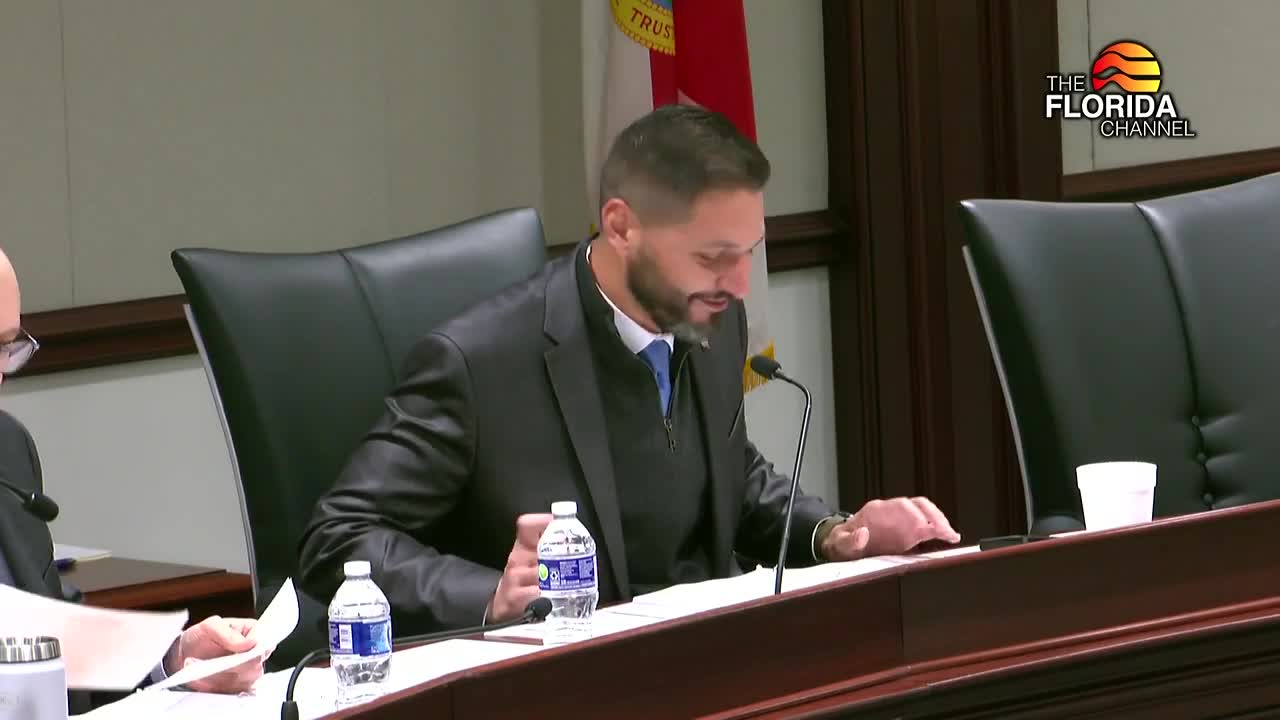Panel advances bill directing DOE to develop workforce credentials, badges for students with autism

Summary
The PreK-12 Appropriations Subcommittee reported favorably on a bill directing the Department of Education to develop a workforce credential and badge system aimed at preparing students with autism and students on modified curricula for employment, with required reporting but no identified fiscal appropriation in the committee explanation.
Senate Bill 102, which would direct the Florida Department of Education to develop a workforce credential and a badge-based training program aimed at students with autism spectrum disorder and students on modified curricula, was reported favorably by the PreK-12 Appropriations Subcommittee after sponsor Sen. Dorothy Gates explained the bill and public witnesses testified both for and against it.
The bill would require the Department of Education to work with the Florida Center for Students with Unique Abilities and the Federal Occupational Safety and Health Administration in developing a training program that issues badges when students demonstrate specific job skills and behaviors, “importantly including workforce safety,” Gates said. The department also would report on badges earned and graduates’ employment outcomes.
Supporters described existing employer partnerships and job-placement programs. “Good Grubs down in Palm Beach County…they are actually placed into hotels and restaurants for work,” Kina Corey of the Florida Goodwill Association told the committee, citing programs her organization runs that train and place people with disabilities in vocational settings.
A special-education teacher who identified herself as Sierra Bush Rester testified against the bill as written, citing ethical and implementation concerns. Rester urged explicit protections to ensure participation is voluntary and an individualized education program team decision, broader eligibility beyond students on modified curricula, dedicated funding for schools, and a research-based accountability framework. “If you’ve met one child with autism, you’ve met one child with autism,” Rester said, arguing against one-size-fits-all placement.
Gates told the committee there is no fiscal impact stated in the committee explanation she presented. The bill text directs development of curriculum and badges and requires an annual department report on outcomes; it does not, as presented in this committee, appropriate new funding or specify implementation support for districts or schools.
By voice and roll call in committee, the subcommittee reported the committee substitute for SB 102 favorably.
Implementation questions raised during testimony center on consent and placement authority, the bill’s limited eligibility language, and the absence of earmarked funding or an explicit evaluation design. Testimony urged the sponsor and staff to add language clarifying voluntariness, IEP-team authority, broader student eligibility, funding, and a research-based accountability framework before the bill advances further.
If advanced in subsequent committees or on the floor, the bill’s requirement that the department coordinate with OSHA and report employment outcomes will be the primary mechanisms by which the state would attempt to measure the program’s effectiveness and safety implications for employers and students.

